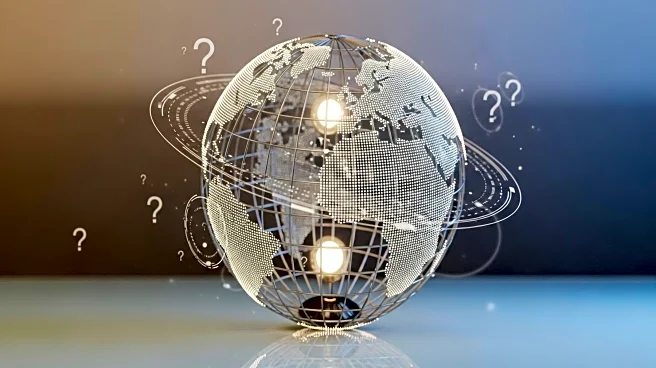What is the story about?
What's Happening?
FIFA has commenced ticket sales for the 2026 World Cup, which will be hosted by the United States, Canada, and Mexico. The initial sale is open to lottery winners selected from 4.5 million applicants. Despite uncertainties regarding match schedules and visa requirements, demand remains high. The tournament will feature 48 teams, with only a portion of the spots claimed so far. Ticket prices range from $60 for group-stage matches to $6,730 for the final, with dynamic pricing expected to adjust these figures. Additional ticket acquisition methods include redeeming airline miles and promotions from sponsors like Verizon.
Why It's Important?
The 2026 World Cup is set to be a significant event, uniting fans globally and impacting tourism and local economies in host cities. The high demand for tickets underscores the event's popularity and potential economic benefits. However, the U.S.'s immigration policies may affect international attendance, posing challenges for overseas visitors. The event also highlights the role of corporate sponsors in enhancing fan experiences through promotions and loyalty programs. The tournament's success could influence future sporting events and international relations.
What's Next?
FIFA plans additional ticket sales phases, including an early ticket draw and a random selection draw, with further opportunities closer to the tournament. The final draw on December 5 will determine the match schedule, influencing ticket availability. Host cities may face changes if deemed unsafe, as suggested by President Trump. The State Department emphasizes the importance of security and efficient visa processes for international visitors. The tournament will run from June 11 to July 19, 2026.
Beyond the Headlines
The World Cup's ability to unite diverse populations will be tested amid global political tensions. The event may serve as a platform for cultural exchange and diplomacy, fostering international cooperation. The dynamic pricing model could set a precedent for future sporting events, affecting ticket accessibility and market strategies. The involvement of corporate sponsors like Verizon highlights the growing intersection of sports and business, potentially influencing sponsorship models in the industry.















